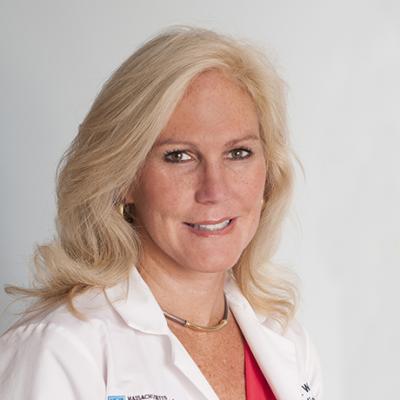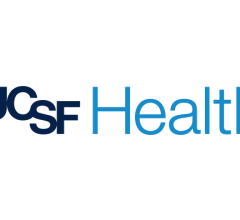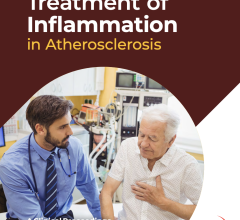
The DAIC editorial team recently conducted a “One on One” feature interview with Malissa J. Wood, MD, FACC, Co-director of the Corrigan Women's Heart Health Program at Massachusetts General Hospital Heart Center, and Associate Professor at Harvard Medical School. Wood is Chair of the American College of Cardiology (ACC) Board of Governors (BOG) and secretary of the Board of Trustees for the 2022-2023 term. Photo courtesy: Massachusetts General Hospital.
February 24, 2023 — As the American College of Cardiology (ACC) prepares to commence its 72nd Scientific Session, “ACC23 Together with WCC” (ACC23/WCC), March 4-6 in New Orleans, La. — women’s cardiovascular health and health equity are emerging as a prominent topic, in scientific sessions, late-breaking clinical trials and keynote addresses.
The DAIC editorial team recently conducted a “One on One” feature video interview with Malissa J. Wood, MD, FACC, focusing on each of these significant issues, and her work.
Wood has been serving as Chair of the American College of Cardiology (ACC) Board of Governors (BOG) and secretary of the Board of Trustees for the 2022-2023 term. She is Co-director of the Corrigan Women's Heart Health Program at Massachusetts General Hospital Heart Center, and an Associate Professor at Harvard Medical School (Boston, MA). A clinical cardiologist and staff physician in the cardiac ultrasound laboratory at Mass Gen, her clinical practice is primarily devoted to the diagnosis and treatment of heart disease in women.
DAIC asked Wood to expand on a presentation she shared at the American Heart Association (AHA) 2022 Scientific Sessions. Her clinical experience and perspective on how to best serve female cardiology patients were featured in a video interview (www.dicardiology.com) which expanded on “Managing acute coronary syndromes in women: Why and when is a unique approach required?”
An excerpt of that DAIC “One on One” Q&A interview with Dr. Malissa Wood follows.
DAIC: How can cardiologists apply your learnings into their practices and patient care?
WOOD: It's very important we understand that cardiovascular disease in women is on the rise. We recognize that overall cardiovascular conditions in women remain under-recognized by healthcare professionals, and by women themselves. Part of the reason for my presentation was to address the disparities in care that exist with women who present to the emergency room with symptoms.
Most young women who present with acute heart attack symptoms will have chest pain, describe things like neck pain, jaw pain, back pain and shortness of breath. Oftentimes, those symptoms will lead the clinicians down a different path. So it's important when a young woman presents, and has chest pain…that appropriate testing be done to identify whether or not there's any evidence of myocardial ischemia or myocardial infarction.
We also know that women are less likely to have tests like troponin performed in the emergency room. And certainly, when there's evidence of ischemia or myocardial infarction, women have a delay in getting to the cath lab and are less likely to receive an intervention such as a PCI or stent once there. And we know young women are more likely to have complications after their first myocardial infarction and actually have a higher mortality rate than do young men. So I think we're trying to unpack some of these disparities and address them head on.
DAIC: Considering the different symptoms presented by men and women, what should clinicians be looking for?
WOOD: Women of color — black women, women of Hispanic origin, may have a higher burden of what we call comorbidities, (hypertension, diabetes), and these factors actually may contribute to the worsened outcome when they present with an acute myocardial infarction. We know risk factors (smoking and diabetes), add greater risk in women than men. And finally, we're also recognizing that for women, either during or immediately after pregnancy, there may be a higher risk of them actually having a cardiovascular event, such as acute myocardial infarction, or heart failure, and that may also be contributing to the increased mortality that we're seeing in young women.
DAIC: How can those issues and risk factors be identified, especially in low-income communities?
WOOD: It’s extremely important to assess young women with a symptom that could be representative of an underlying cardiovascular problem. We assess them with appropriate testing and in the emergency room that's going to include an EKG of course, physical exam, blood testing with high sensitivity troponin. If there's concern for ischemia, or myocardial infarction, a bedside ultrasound, or echocardiogram can be helpful in looking for focal wall motion abnormalities. Other tests that can be helpful include a CT angiogram of the coronary arteries, or an invasive coronary angiography.
We know that when young women are taken to the cath lab that they are more likely than young men to have non obstructive coronary artery disease, even in the setting of a myocardial infarction. And this entity called MINOCA, Myocardial infarction with non-obstructive coronary artery disease, does deserve a very detailed and careful evaluation, because it does carry a worse prognosis than an individual who doesn't have underlying acute ischemia and myocardial infarction. And that requires careful assessment in the cath lab to look for subtle features, such as a clot in the artery, like a coronary embolism, or spontaneous coronary artery dissection, that can sometimes be somewhat elusive, particularly if it involves a small branch vessel.
DAIC: Can you speak next to initiatives focused on health equity, and improved outreach?
WOOD: Absolutely. We know that health inequities are pervasive in the United States. And it's certainly something where both the American College of Cardiology (ACC) and the American Heart Association (AHA) are really directing efforts at education, and implementation science. We're trying to create and fund studies that will incorporate more women and more individuals that are non-white. We know in the past, many trials included fewer than 30% women, and oftentimes fewer than 10% non-white patients. From a research perspective, just incorporating data and including more patients will allow us to hopefully be able to develop treatment algorithms, and really to gain the trust of groups of patients who in the past may not have been as trusting of our research teams.
We also are really working in the community to raise awareness about how we can prevent heart disease in individuals who are at risk, and also to create community champions, who will help raise awareness about the symptoms and signs of cardiovascular disease, so that patients can seek medical attention sooner, and hopefully prevent some of the untoward consequences of an acute myocardial infarction.
DAIC: Final thoughts?
I’d like to quote Dr. Victor Dzau, a well-known American cardiologist, who stated: “We cannot have health equity until we have social equity.” So I think we really need to work hard to make sure that we do everything we can to address structural racism. And we need to build a pipeline and foster a pipeline of care providers, clinicians, nurses, physicians who look like our patients...because until we have more concordance between care providers and patients, I think we will still not necessarily gain the full trust of the patients that we're trying so hard to care for. We really need to do everything we can to get care in the communities, and to really address disparities in care to young woman, particularly young black mothers.
To view the full video interview, go to: VIDEO: Managing Acute Coronary Syndromes in Women
More information:
https://accscientificsession.acc.org
https://accscientificsession.acc.org/en/Plan-Your-Program
Related coverage:
Keynote Speakers to Address Timely Issues at ACC.23
American College of Cardiology Announces “ACC.23 Together with WCC” Program Highlights


 February 04, 2026
February 04, 2026 









